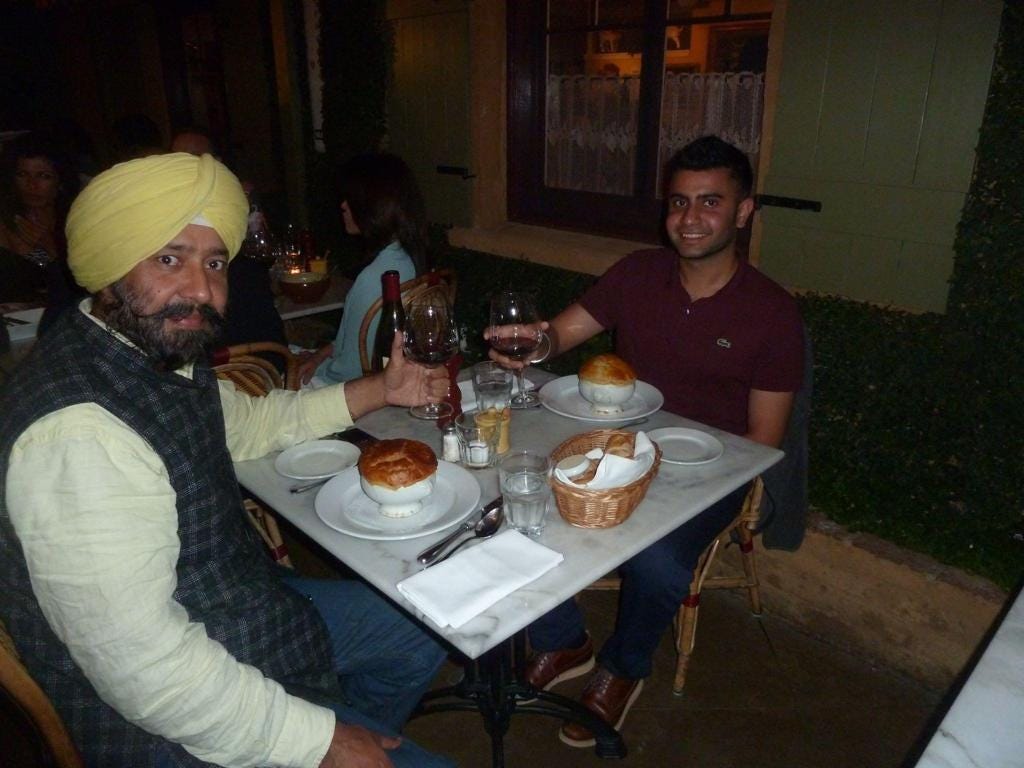Introduction
Ah, tipping! An age-old practice that's as American as apple pie, baseball, and the 'Star-Spangled Banner.' But what happens when this custom crosses borders and oceans? What happens when the tipping culture, buoyed by mobile apps and technology, lands in your payment options no matter where you are? As someone who has been on both sides of the spectrum—from tipping generously to haggling with street vendors back home—I find this system of "mandatory tipping" both fascinating and baffling. So, let's dive into this, shall we?
The Unavoidable "TIP"
TIP originally stands for "To Insure Promptness," not "To Irritate Paying-customers." However, it seems the latter would be more accurate these days. From Uber to dine-in restaurants, the option to tip is not just available, but it is almost shoved down our throats. You have the option to tip 10%, 20%, or even 25%. Wait, what? Yes, 25%—that's not a typo. And here's the kicker: the tip is added on top of taxes and any delivery charges you might already be paying for. If you don't want to tip? Well, good luck navigating through the "Custom" option, because the system surely won't make it easy for you.
The Pushy Algorithms
I get it, Uber. I didn't tip or rate the driver. But you don't have to keep reminding me every second as I rush to book my next trip. The apps and their algorithms are designed to 'egg on' or 'nudge' customers into tipping, making it seem almost like an obligation rather than a choice. It's algorithmic arm-twisting at its finest!
And it's not just cab services. Food delivery platforms like DoorDash and Uber Eats are equally zealous in their tactics. For instance, how many times have you seen messages like "Jane is delivering your order today. It's cold and rainy. Your tip would be highly appreciated"? These platforms outdo each other in making you feel guilty for not tipping, as if the weather conditions are somehow your fault!
The Dine-In and Delivery Dilemma
Dine-in restaurants have long been the battleground of this tipping conundrum. A default 15% tip automatically added to the bill? Really? As if dining out weren't already an expensive affair, this additional 'suggestion' turns it into a moral dilemma. Tipping, I believed, was meant to be a token of appreciation for exceptional service, not a mandatory levy for the mere act of dining in public.
Let's not forget the food delivery services—DoorDash, Uber Eats, and their ilk—which have seamlessly integrated into this system of quasi-obligation. Whether you’re satiating your hunger from the comfort of your home or relishing a meal at a fancy restaurant, the awkward question looms: to tip or not to tip? Do you appreciate the waiter but hold reservations about the chef's culinary skills? Or do you find fault in a tardy delivery despite a scrumptious meal? It's a knotty predicament that leaves many, including myself, without clear answers.
The Irony of “Desi’ Nuances
What truly amazes me is the ease with which we Indians, accustomed to negotiating with street vendors over every rupee, have embraced this tipping culture abroad. The irony is palpable considering the 83:1 exchange rate between the rupee and the dollar. Back in our homeland, haggling is an art form, a symbol of prudent financial management. Yet, when we step outside our borders, our bargaining instincts seemingly take a backseat, allowing us to part with significant sums in the name of tips. Such is the paradox of cultural adaptation!
A Personal Reflection on Conveying Appreciation
While I've been musing on the culture of tipping, it made me ponder other areas where we express our appreciation monetarily. Take newsletters, for example. I subscribe to several that enrich my day in various ways. Even when the content offered in both the free and paid versions is much the same, the option to upgrade does make me pause. It's usually just a dollar a month, a small sum, really. Is this not akin to tipping, a token of my appreciation for the value I derive from these writings? Upon contemplation, I've come to believe it's neither a purchase nor a tip—it's a very significant way of saying "Thank You!”, or as we Indians are wont to say, a “shagun”.
Tipping: A Global Quagmire
Tipping has morphed into an ubiquitous global practice that often leaves us puzzled and mildly annoyed. What was originally intended to "insure promptness" now seems to insure confusion. With cash tills, mobile apps, and even restaurants proactively suggesting tip percentages, the line between voluntary appreciation and subtle coercion has blurred. This evolution raises ethical and economic questions that can't be ignored, particularly when these 'suggested tips' encroach upon our personal judgement and financial discretion.
Though this all warrants a chuckle, it's also high time we took a closer look at this tipping culture. Consumers of the world, unite! Lest they consume your budget, if not your wallet.
==================
REQUEST: If you enjoyed this article from 'The KBS Chronicle', we encourage you to share it with others who might also find it valuable.
Thank you for your support.








Tips.
dine in
Geographical location matters.
Generally speaking , all servers legally are entitled to their tips. ( US federal law) Tips are major part of server’s earnings. Please keep in mind , his/her livelihood depends upon tips.
Very interesting. We found this tipping Very irritating in the start of our jobs, as we were allowed only a very limited money may be just500 Dollars.,for 5_7 days conference But the good thing is whenever we got Indian or Pakistani cab drivers they refused the tip &charged only the fare I think they understand our problem after that we always hired south Asian cabs